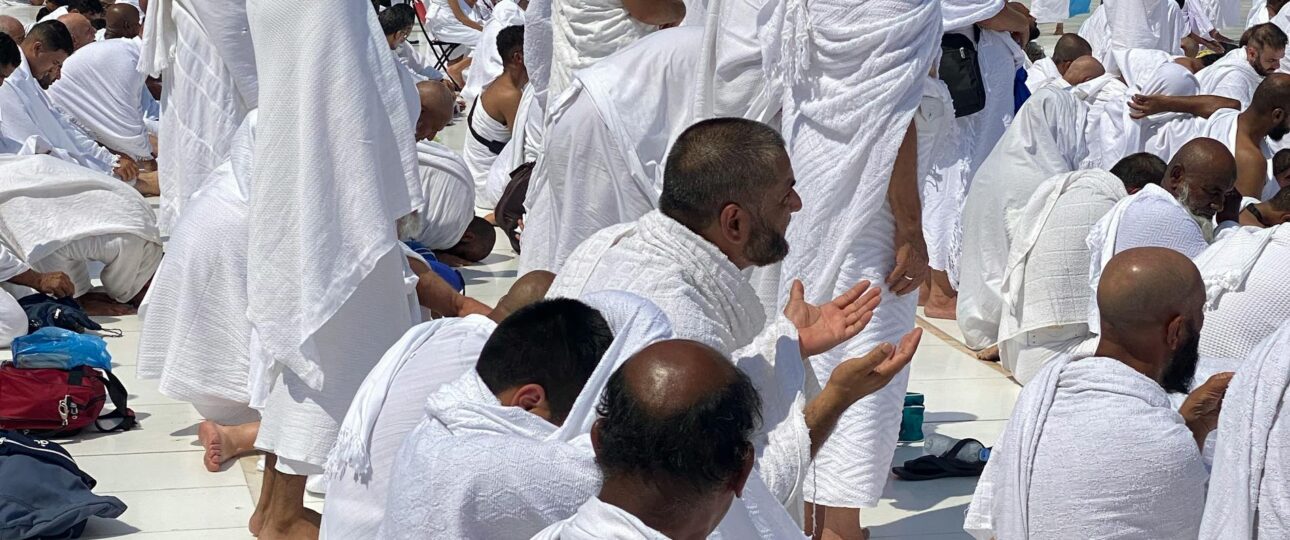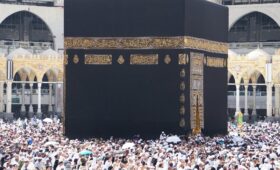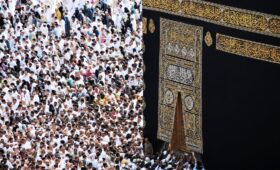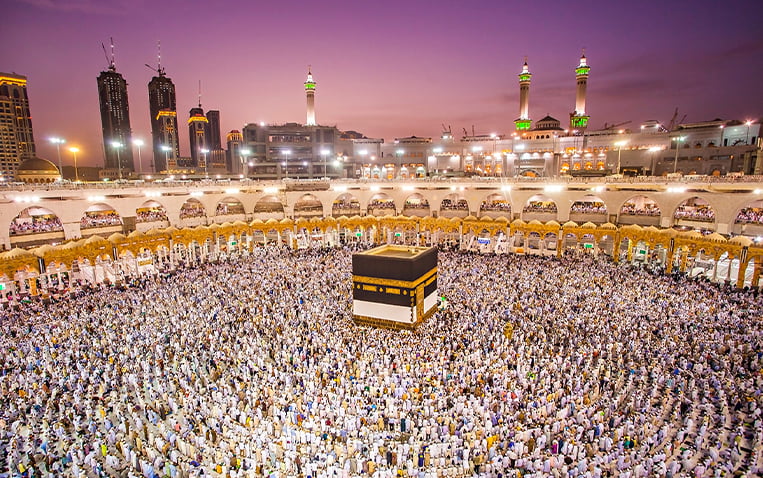Ihram for umrah and hajj is essential because it’s a requirement for traversing the Miqat border surrounding Makkah in any direction. It is not possible to access Miqat without being in Ihram for umrah and hajj. Moreover, you can’t perform umrah without ihram, thus, when getting ready for this important step, pilgrims must be aware of their route of travel and have proper knowledge of getting into the state of ihram for umrah and hajj.
Following are steps to follow while getting into the ihram state:
- Neatness of body for Ihram
- Ghusal or Taharah
- Offer Nafil for Ihram
- Wearing Ihram Sheets
- Applying Scent
- Niyyah for Umrah
- Talbiyah for Umrah
- Prohibitions of Ihram
- Head Toward Makkah for Umrah
Neatness of body for Ihram Umrah
Before entering the Ihram for umrah, make sure you give yourself a quick grooming session.
- Cut off any extra body hair
- Trim your nails
- Trim your mustache
- Style your beard
- Comb your hair
Keep in mind that abstaining from these activities while wearing an Ihram for umrah is a symbol of dedication that directs your attention from outward appearance to spiritual connection on your quest for holiness.
Offer Nafil for Ihram Umrah 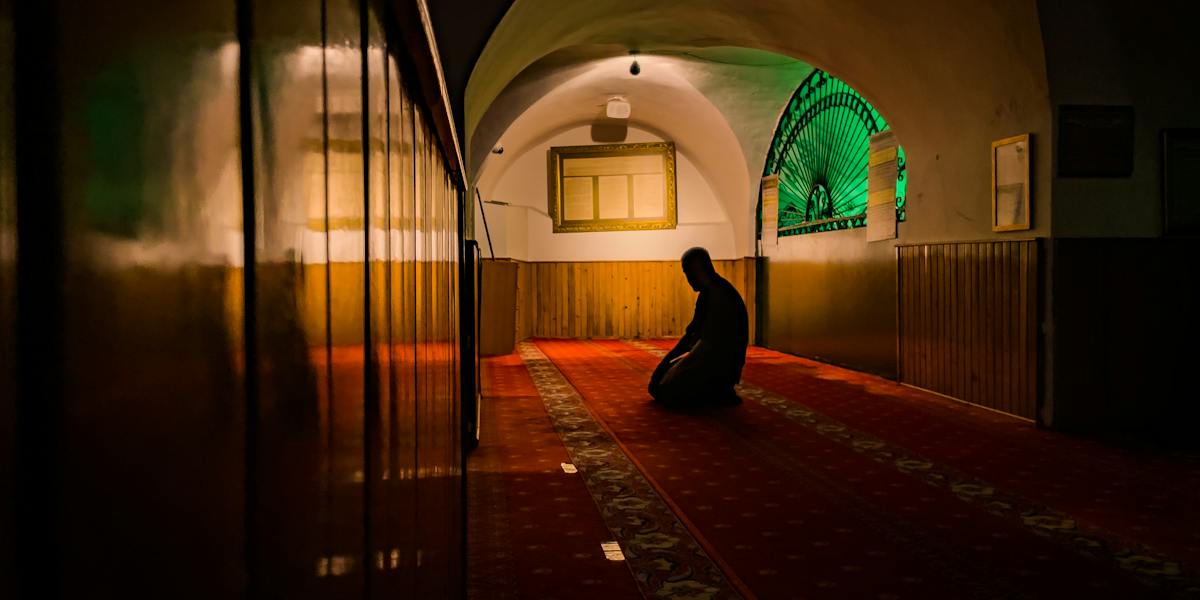
It is Sunnah to recite two rakats of Salah before entering the spiritual state of Ihram for umrah. Make sure to cover your head during the prayer and offer these two Rakats in Nafil for Ihram if time allows. Surah Al-Kafirun (Surah 109) in the first Rakah and Surah al-Ikhlas (Surah 112) in the second, or any other Surahs you want, even if you are not yet in the condition of Ihram for umrah. Spend a moment making a dua to ask for blessings for the holy journey that lies ahead once you have finished the prayer.
Ghusal or Taharah
Declare your intention and take a bath, do ghusl, or if that is not possible, do wudhu, before entering Ihram for umrah. It is important to distinguish between two types of purification: external purification (cleaning your body with a shower or Wudhu) and interior purification (spiritual purification) attained by honest repentance. Say something along the lines of, “O Allah, I genuinely repent for my sins and seek your forgiveness.”
Wearing Ihram Sheets
Male pilgrims are required to wear two sets of white sheets, one covering their upper body and the other covering their lower body. However, women are still allowed to dress in their regular clothes for Ihram.
It is recommended that people of all genders wear flip-flops so that the middle bones of their top feet are visible. By encouraging equality, simplicity, and camaraderie among pilgrims, this dress code strengthens their shared dedication during this holy pilgrimage.
Applying Scent (Attar)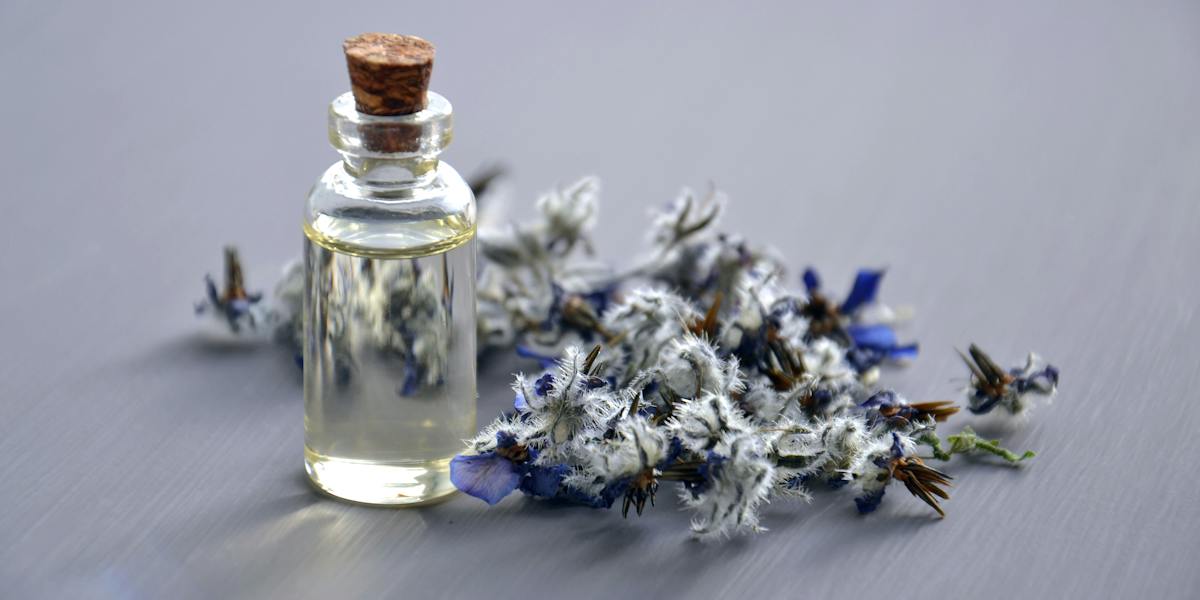
It is customary for pilgrims to apply perfume, ideally attar, after showering before entering the Ihram. But it’s imperative that you do this before making the intention or saying the Talbiyah for Ihram attire. In keeping with Sunnah custom, it is advised to apply perfume on the body rather than the garments prior to Ihram. This small gesture, which is in line with the traditional customs of the holy pilgrimage, lends a hint of scent to the pilgrim’s personal preparation.
Niyyah for Umrah
It is best to declare your intention (Niyyah) at the Miqat as you approach it when getting ready for Umrah. To reduce how long the limits are in place, it is best to postpone the intention until the very last minute. It is advised to express and internally reiterate the purpose (Mustahabb) in order to guarantee a certain dedication to the holy voyage and conformity with the pilgrimage customs.
You must make the Niyyah and reveal your head. Declare your intention by saying:
اللَّهُمَّ إِنِّيْ أُرِيْدُ الْعُمْرَةَ
O Allah, I intend to perform Umrah.
Talbiyah for Umrah
It is necessary to say the Talbiyah after making your Niyyah for Umrah in order to declare your purpose and put yourself in the Ihram. Speaking the Talbiyah is seen as a Sunnah. It is required that you recite the Talbiyah at least once after deciding to perform Umrah; otherwise, the ritual will be deemed void. Dashes (—) in the prayer highlight the four precise points at which it is advised to halt briefly while reciting the Talbiyah.
لَبَّيْكَ اللهُمَّ لَبَّيْكَ—لَبَّيْكَ لَا شَرِيْكَ لَكَ لَبَّيْكَ—إِنَّ الْحَمْدَ وَالنِّعْمَةَ لَكَ وَالْمُلْكَ—لَا شَرِيْكَ لَكَ
Here I am, O Allah! Here I am—Here I am, You have no partner, here I am—Verily, all praise and thanks belong to You,Verily, all blessings belong to You,Verily, all sovereignty belongs to You—You have no partner
Prohibitions of Ihram Umrah and Hajj
To maintain a holy and concentrated condition while in Ihram, pilgrims are required to abstain from specific activities. These include refraining from
- Shaving or cutting hair
- Covering one’s head or concealing one’s face
- Applying perfume
- Having sex
- Going hunting or killing
- Men wearing clothing that is sewn
- Both sexes making sure their middle foot remains uncovered
Following these guidelines is essential to preserving a feeling of chastity and commitment during the journey. It is recommended that pilgrims pay attention to these rules because disobeying them could undermine the legitimacy of their holy pilgrimage.
Head Toward Makkah for Umrah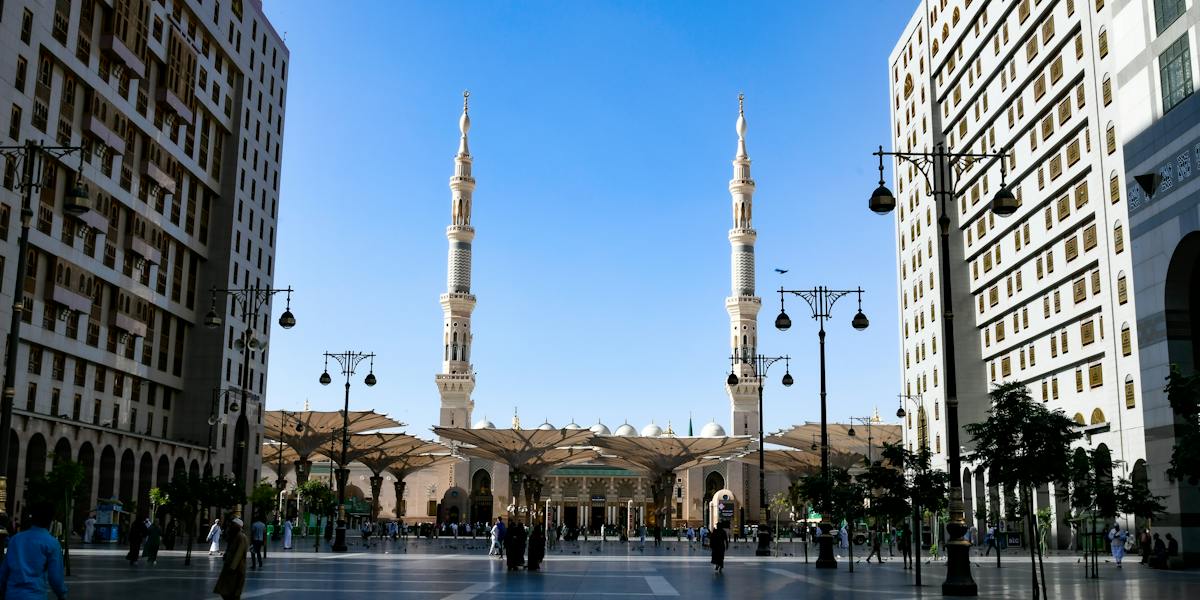
Continue reciting the Talbiyah as you set out to travel to the holy city of Makkah, letting its hallowed words sink into your soul. With the spiritual link strengthened by the echoes of Talbiyah, approach the city with humility and love in your heart.
After you arrive at your lodging, head toward Makkah with a mixture of respect and eagerness. Accept the profound Umrah ceremony and let your movements be guided by the rhythmic recitation of Talbiyah. This recitation represents your steadfast dedication to the holy path, adding genuineness and devotion to your pilgrimage.
With our warmest regards, you embark on your Hajj and Umrah pilgrimages. I pray for spiritual enlightenment and divine direction on your holy journey. When you are spending time in devotion and introspection, remember us. I’m wishing you a journey full of grace and acceptance, as well as safe travels.
Conclusion
To sum up, the process of entering the hallowed state of Ihram for Umrah necessitates strict observance of both religious rites and practical preparations. The listed dos and don’ts guarantee a purposeful and conforming approach, encouraging a link between the pilgrim’s external behavior and internal devotion.
May the fragrance of honesty, echoed in the recitations of Talbiyah, direct your steps as you set out on the journey towards Makkah. I hope your Umrah is a life-changing and fortunate event that will forever impact your spiritual path. Safe travels.
FAQ’s
What should I do before entering Ihram?
In order to be ready, comb your hair, clip your nails, get rid of any extra body hair, and, for males, style your beard and trim your moustache.
With the goal of donning Ihram, take a bath (making wudhu is acceptable in the event that bath water is unavailable).
Can I brush my teeth in Ihram?
Yes, a Muslim in the state of ihram can brush his teeth. And it is permissible if there is likelihood of bleeding.
What is the Umrah Miqat?
Muslim pilgrims planning to do the Ḥajj or ʿUmrah must pass through the miqat (Arabic: مِيْقَات, romanized: mīqāt, lit. ‘a stated site’), which is the main boundary that marks the state of iḥrām (lit. ‘prohibition,’ a condition of consecration in which some allowed acts are deemed illegal).
Can I sleep in Ihram?
You are not allowed to take off your ihram and put on regular clothing during umrah or hajj, but you are allowed to rest or sleep in it if needed.
What do you wear under an abaya for Umrah?
To conduct Umrah, you should put on a loose-fitting abaya over your casual attire. Abayas in white and black are both appropriate. It is not advised to wear thin or bright garments under the abaya. A white abaya is recommended because of the climate in Makkah and Madinah.
Is a bath obligatory before performing the Umrah?
It is Sunnah for men and women alike, including menstruating women and those who are bleeding after giving birth, to bathe for Ihram. Other than those who are experiencing menstruation or postnatal bleeding, a pilgrim prays the required prayer after taking a bath and getting ready, if the time is right.

